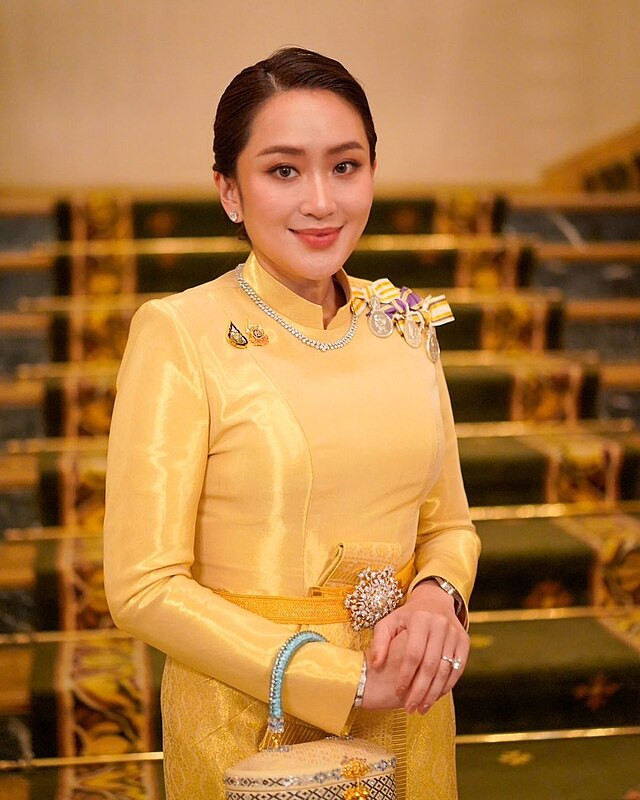In a landmark moment for Thailand's political landscape, Paetongtarn Shinawatra, the youngest daughter of the former Prime Minister Thaksin Shinawatra, was elected as the country's new prime minister on Friday. At just 37 years old, Paetongtarn becomes not only Thailand's youngest leader but also the second woman to hold the office, following in the footsteps of her aunt, Yingluck Shinawatra.
Paetongtarn's ascent marks the continuation of the Shinawatra family's influence in Thai politics, with her father and aunt both having previously held the nation's highest office. Thaksin Shinawatra, one of Thailand's most polarizing political figures, was ousted by a military coup in 2006 and spent years in exile before his return last year, a move seen by many as part of a political arrangement to secure his daughter's rise to power.
The parliamentary vote that confirmed Paetongtarn as prime minister was decisive, with 319 members of Parliament voting in her favor, 145 against, and 27 abstentions. Despite her lack of experience as an elected lawmaker, Paetongtarn's nomination was unchallenged, and she will now await royal endorsement to officially assume office.
In her first speech following the parliamentary vote, Paetongtarn expressed her gratitude and determination to lead the country forward. "I really hope that I can make the people feel confident, that we can build the opportunity and the quality of life," she said, adding that she was "honored and happy" to have received the support of Parliament.
Paetongtarn's father, Thaksin, remains a significant figure behind the scenes, widely regarded as the de facto leader of the Pheu Thai party, which has consistently been a dominant force in Thai politics. However, his enduring influence is both a strength and a potential liability for his daughter's administration. Petra Alderman, a political research fellow at the University of Birmingham, noted that while Thaksin's political acumen is undeniable, his involvement could complicate Paetongtarn's leadership. "Thaksin was a political force to reckon with, but he was also a liability," Alderman said. "Serving in his shadow has never been easy."
The political landscape Paetongtarn inherits is fraught with challenges. Her nomination follows the ousting of Prime Minister Srettha Thavisin, who was removed from office just two days ago by the Constitutional Court for an ethics violation. This ruling is part of a broader pattern of judicial interventions in Thai politics, where unelected bodies such as the Constitutional Court and the Election Commission wield significant power over who governs.
Thailand has seen considerable political upheaval in recent years, with the progressive Move Forward party, which won last year's general election, being blocked from taking power and ultimately dissolved by the Constitutional Court. This left the field open for Pheu Thai to form a coalition government, albeit with parties previously aligned with the military government that had ousted Thaksin in a coup.
Paetongtarn's rise to power is also emblematic of a broader political bargain in Thailand. Her father's return from exile and the subsequent formation of a coalition government are seen by some analysts as a calculated move to prevent the reformist Move Forward party from gaining control. The military-appointed Senate, which previously had the power to veto prime ministerial candidates, no longer holds that authority, making Paetongtarn's majority support in the lower house sufficient for her to ascend to the premiership.
Napon Jatusripitak, a political science researcher at Singapore's ISEAS-Yusof Ishak Institute, suggests that Paetongtarn's leadership could stabilize the ruling coalition, particularly given her close ties to her father. "In a strange way, it creates a clear chain of command and curbs factionalism," Napon said. "Paetongtarn will be given clear jurisdictions on where she can exercise her own agency and where it is a matter between her father and the coalition members."
However, the political dynamics in Thailand are anything but predictable. With the dissolution of the Move Forward party and the exclusion of its leader, Pita Limjaroenrat, from political activities, the remaining major parties are likely to engage in a power struggle, with Paetongtarn's leadership potentially serving as a focal point for both unity and division.




